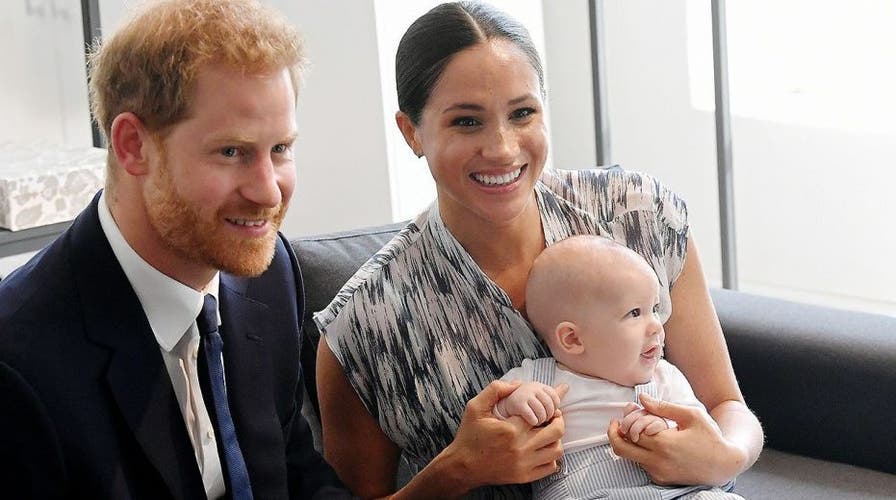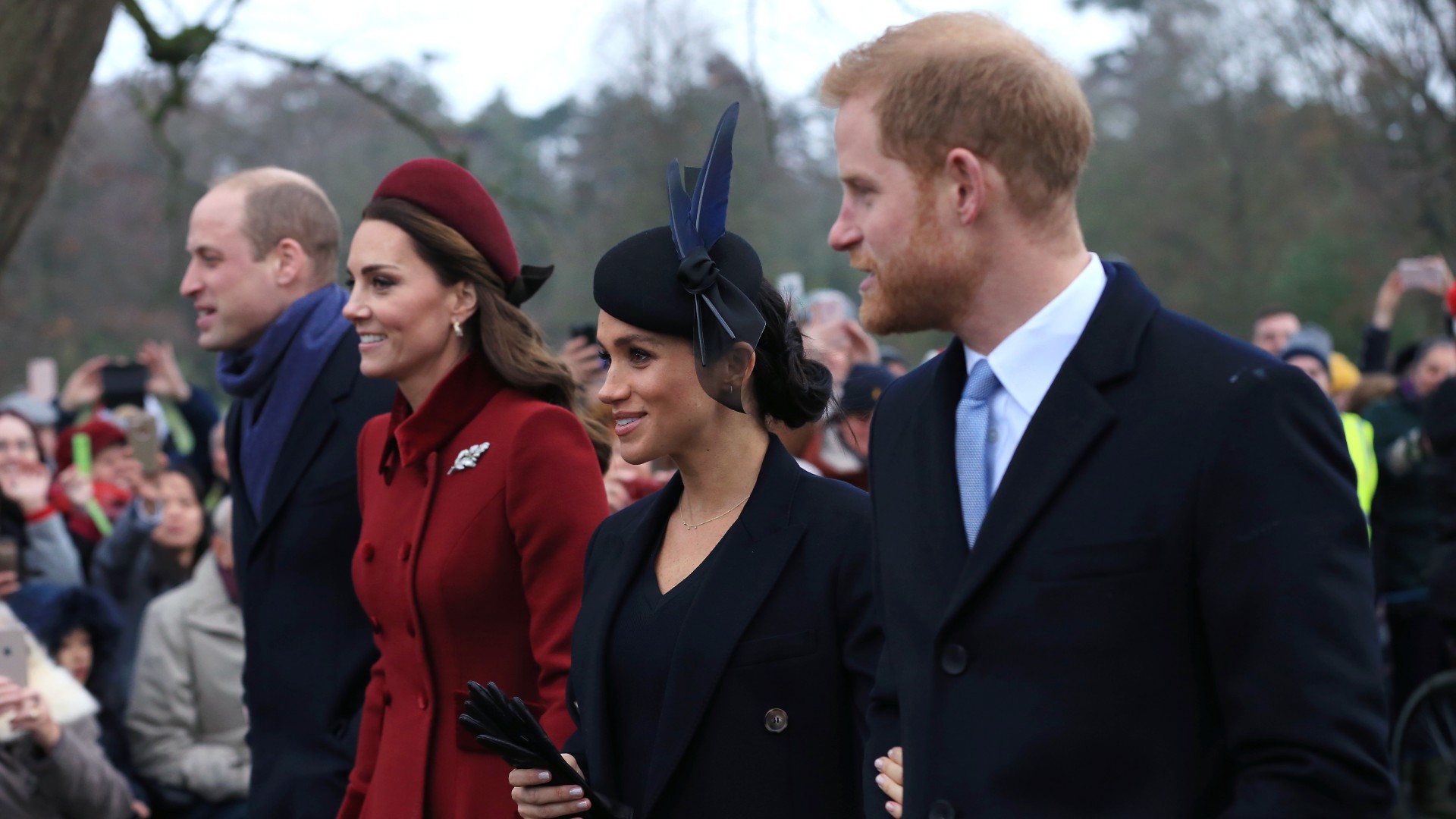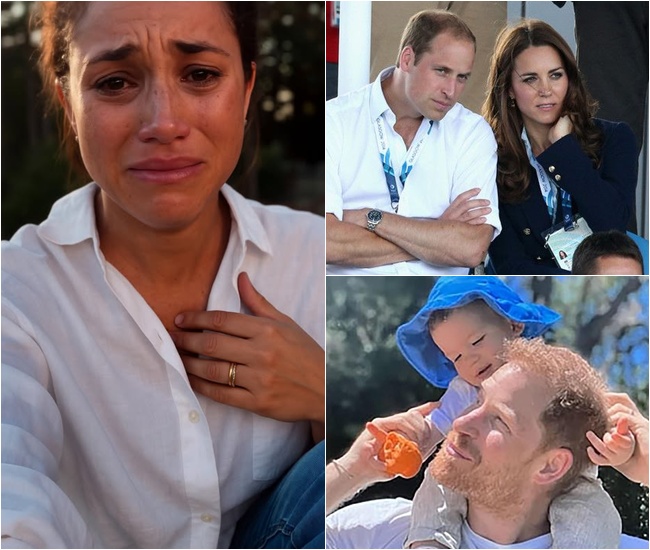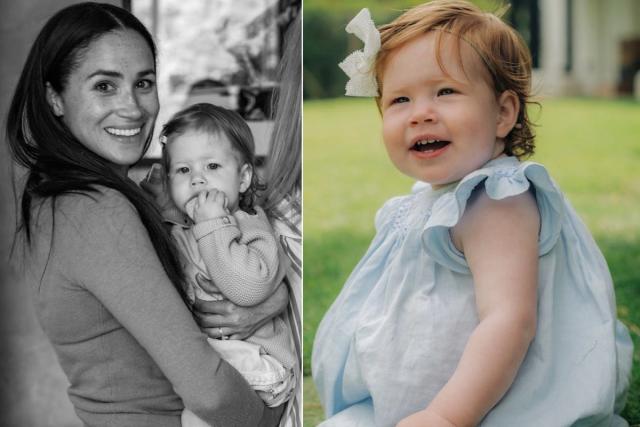The Duke and Duchess of Sussex, Prince Harry and Meghan Markle, continue to live under a unique and often intense public spotlight. Since stepping back from official royal duties in early 2020, the couple has faced continuous scrutiny—sometimes fueled by speculative headlines and unverified sources.
One recent example involves unfounded rumors and misinformation related to the parentage of their son, Archie Harrison Mountbatten-Windsor, who was born in 2019. While some unsubstantiated reports have circulated online, it is important to emphasize that no credible source, official statement, or verified media outlet has confirmed any such claims.
This article aims to clarify what is publicly known, what is speculative, and why distinguishing between the two is critical when discussing matters involving the British royal family and public figures more broadly.
The Truth About Archie’s Parentage
According to the official royal.uk website and public birth records, Archie Harrison is the first child of Prince Harry and Meghan Markle. He was born on May 6, 2019, at Portland Hospital in London and is seventh in line to the British throne.
No official or reputable media outlet—including the BBC, Reuters, The Guardian, or Associated Press—has reported any controversy regarding Archie’s parentage. Prince Harry and Meghan have been clear and consistent in their public statements and appearances, celebrating Archie’s milestones and including him in their official family portraits.

Rumors and Their Impact on Public Figures
In the digital age, misinformation spreads quickly—especially when it involves high-profile individuals. A growing number of unverified claims have surfaced on social media and tabloid platforms, often citing unnamed “insiders” or anonymous sources.
According to a 2021 study by the Reuters Institute for the Study of Journalism, content about the British royal family is among the most clicked and shared globally, making it a prime target for sensationalism. However, these stories often lack evidence and fail to meet journalistic standards of accuracy and transparency.
Misinformation related to family or children—as in the case of Prince Harry and Meghan’s son Archie—can be especially damaging. It not only affects public perception but also has emotional consequences for the individuals involved.

Meghan and Harry’s Relationship with the Public
Since relocating to the United States and settling in Montecito, California, the Duke and Duchess of Sussex have continued to pursue projects aligned with their values. Through their Archewell Foundation, they have championed causes such as mental health awareness, vaccine equity, early childhood development, and responsible digital media.
Their 2021 interview with Oprah Winfrey, broadcast by CBS, marked a turning point in their relationship with the public and the monarchy. In that interview, Meghan and Harry spoke openly about their struggles, the importance of mental well-being, and the need to protect their children’s privacy.
They emphasized that their departure from royal duties was not a rejection of family, but rather a pursuit of a healthier, more independent life. Since then, they have participated in documentaries, spoken at global summits, and collaborated with organizations like World Central Kitchen, Invictus Games, and BetterUp, where Prince Harry serves as Chief Impact Officer.
Protecting the Privacy of Children in the Public Eye
One of the Sussexes’ most consistent positions has been a desire to shield their children from media intrusion. Archie, along with his younger sister Lilibet Diana (born in 2021), has been featured only selectively in public or press appearances.
This aligns with guidelines from organizations such as the Children’s Commissioner for England and the United Nations Convention on the Rights of the Child, both of which emphasize that children—regardless of their parents’ public status—are entitled to a private life.
Repeated efforts by the couple to ensure their children are raised out of the public eye highlight their commitment to responsible parenting and digital safety. The Duke and Duchess of Sussex have even taken legal action in the past when unauthorized photos of their children were published, asserting their right to privacy under UK and US privacy laws.
Why Media Accuracy Matters More Than Ever
False or misleading headlines can have long-term effects. According to The Royal Communications Office, the royal family rarely comments on speculation. This is part of a long-standing policy of maintaining dignity and avoiding fueling further rumors.
However, outlets such as BBC News, The Times, and The Telegraph have repeatedly warned against the rapid spread of unverifiable stories, especially when they rely on ambiguous sourcing or imply scandal where there is none.
In fact, the UK media regulator Ofcom and press advocacy organizations like IMPRESS have reminded publishers of their responsibilities under the Editors’ Code of Practice, particularly regarding accuracy, children’s rights, and the avoidance of harm.
Public Reaction and the Role of Social Media
While speculation might spark temporary online interest, it also contributes to what researchers at Oxford Internet Institute call the “attention economy of misinformation.” When audiences engage with headlines or content that exaggerate, distort, or fabricate reality, it incentivizes the creation of similar material.
Prince William and Princess Catherine have consistently avoided commenting on personal family disputes, and there is no verified report of their reaction to any alleged statements by Meghan. Similarly, Prince Harry has made no public comments about any DNA-related claims, and no formal statements have been issued by Buckingham Palace or representatives for the Sussexes.

The Larger Picture: Trust, Media Literacy, and Legacy
Rather than focusing on viral rumors, it’s important to understand the broader narrative. Prince Harry has authored a memoir, Spare, released by Penguin Random House in 2023, which provides in-depth accounts of his family life, challenges, and personal evolution. Meghan, meanwhile, has been working on upcoming media projects and philanthropic initiatives centered around compassion, resilience, and women’s empowerment.
Both have spoken candidly about the mental and emotional toll of false media portrayals. Their journey, and their decision to step back from royal duties, reflects a growing global conversation about mental health, media responsibility, and the right to live authentically.

Conclusion: Let’s Focus on Facts, Not Fiction
As interest in the royal family remains high, it’s vital that readers and publishers alike support accurate, respectful, and evidence-based reporting. There is no verified truth to rumors questioning the parentage of Archie, and such narratives only distract from meaningful conversations about family, identity, and public service.
By turning away from sensationalist headlines and valuing journalistic integrity, audiences can contribute to a healthier media environment—one that prioritizes truth, empathy, and understanding over viral clicks and manufactured outrage.
Verified and Reputable Sources:
- BBC News
- Reuters
- Royal.uk – Official Royal Family Website
- Penguin Random House – Spare by Prince Harry
- Reuters Institute for the Study of Journalism
- Ofcom UK – Media Regulation
- Children’s Commissioner for England
- UNICEF – Rights of the Child

